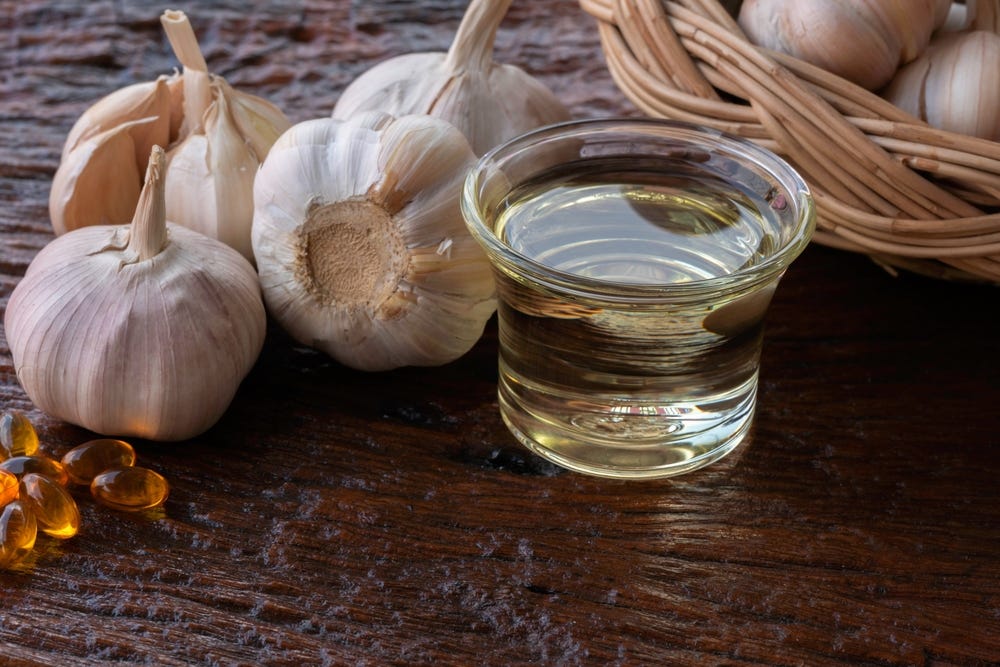Garlic is a staple in any well stocked kitchen and is used in a variety of different culinary dishes. When used in cooking, it gives a light heat and lift to a dish and pairs well with lemon, tomatoes, and olive oil. Besides its culinary benefits, garlic is also known to help in immune health and more.
Have you ever noticed that uncut garlic does not give off a smell, but cut garlic does? This is due to a chemical called allicin. When garlic is cut or chewed, it sets off a series of reactions where a chemical called allicin gets produced. Allicin then produces other sulfur containing chemicals, many of which are responsible for garlic’s benefits. (Any sulfur containing chemical will have a very distinct, pungent smell.)
Allicin and its by-products increase nitric oxide in blood vessels (i.e., increases vasodilation). This lowers blood pressure and reduces arterial stiffness (especially amongst individuals who are hypertensive). Garlic also helps by decreasing LDL (bad) cholesterol and increasing HDL (good) cholesterol. Studies have shown that it lowers total cholesterol as well. Preliminary (animal based) research suggests that garlic may help with increasing memory and cognition, although studies in humans have yet to be performed.
Although garlic is most known to benefit cardiovascular health, it is also known to benefit the immune system. Studies have shown that the frequency of the common cold is reduced by 60-70% for individuals who take garlic supplementation daily. When symptoms of the cold have already started, garlic helps reduce the length of sickness and severity of symptoms. Garlic also helps the immune system by preventing cancer. Studies have shown that eating garlic daily reduces the risk of stomach, prostrate, and stomach cancers.
Depending on how garlic is processed will impact the allicin content. Raw (that is cut or chewed), roasted, and grilled garlic or aged garlic extract have the highest level of allicin. Garlic oil has the lowest level of allicin. Boiling or microwaving garlic has either produces no allicin or destroys the allicin (respectively). Most studies show that consuming two cloves of garlic per day (spread throughout the day) gives the greatest benefits for either cardiovascular or immune health. If the taste of raw garlic is too off-putting, consuming in a supplement (aged garlic extract) in dosages between 600-1200 milligrams per day shows similar benefits. Like Aspirin, garlic can thin the blood resulting in a reduction of blood clotting. Caution should be taken not to consume too much.
Supplements are typically found in tablet or capsule form since the taste of raw garlic is off-putting. This supplement is the equivalent of about half a clove of garlic. This supplement is the equivalent of about a clove of garlic and is advertised for cardiovascular health. Most garlic supplements are advertised for cardiovascular health, although its benefits for immune health are just as important.
What is your favorite garlic containing dish?
Any suggested products are purely the writer’s own opinion and does not imply affiliation with the brand.



